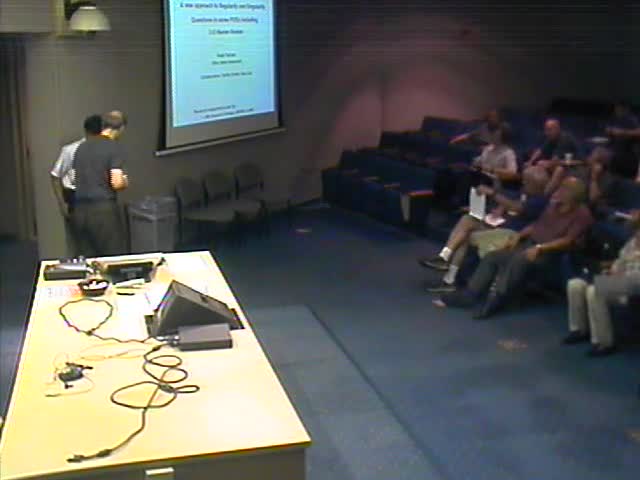A new approach to regularity and singularity questions for a class of non-linear evolutionary PDEs such as 3-D Navier-Stokes equation
Presenter
July 17, 2008
Keywords:
- Navier-Stokes equations
MSC:
- 35Q30
Abstract
Joint work with Ovidiu Costin, G. Luo.
We consider a new approach to a class of evolutionary PDEs
where question
of global existence or lack of it is tied to the asymptotics
of solution
to a non-linear integral equation in a dual variable whose
solution has
been shown to exist a priori. This integral equation approach
is inspired
by Borel summation of a formally divergent series for small
time, but has
general applicability and is not limited to analytic initial
data.
In this approach, there is no blow-up in the variable p,
which is dual to
1/t or some power 1/tn; solutions are known to be smooth in
p and exist
globally for p in R+. Exponential growth in p, for different
choice of n,
signifies finite time singularity. On the other hand,
sub-exponential
growth implies global existence.
Further, unlike PDE problems where global existence is
uncertain, a
discretized Galerkin approximation to the associated integral
equation has
controlled errors. Further, known integral solution for p in
[0, p0],
numerically or otherwise, gives sharper analytic bounds on
the exponents
in p and hence better estimate on the existence time for the
associated
PDE.
We will also discuss particular results for 3-D Navier-Stokes
and discuss
ways in which this method may be relevant to numerical
studies of finite
time blow-up problems.
